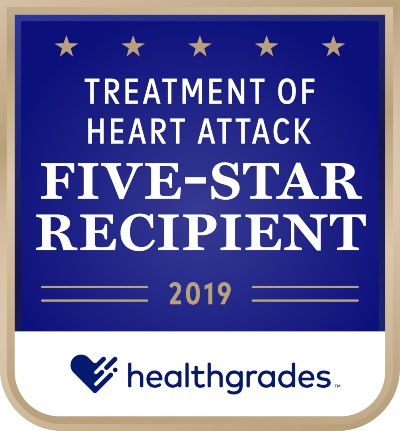Culver City Goes Red in February

There is a reason that National Heart Month falls in February—the same month that Valentine’s Day is celebrated. As Valentine’s Day is all about the heart, this is a good match. Heart disease is the leading cause of death for both American men and women; almost one in every four deaths in the United States is caused by heart disease. African-American men are especially susceptible.
Many of us make New Year’s resolutions in January that are related to living a healthier lifestyle, such as eating healthier, exercising more and eliminating bad habits, such as smoking. We all know these help reduce the risk for heart disease and stroke. However, statistics show that our resolutions start to falter by February. For this reason, celebrating National Heart Month in February can provide momentum for starting or reinforcing these good-intention resolutions.
The keep your healthy living goals moving forward in February, here are some tips to incorporate National Heart Month into you and your families’ daily lives:
- Find a way to exercise every day and incorporate foods high in soluble fiber (beans, oats, barley, apples, pears, and avocados) to lower cholesterol levels. Another way is to incorporate a salad into your daily eating. An easy tip toward health is to drink 8 8-ounces of water a day (8x8 rule), which also helps you feel fuller.
- Increase physical activity to at least 30 minutes a day. Walking alone, with your dog or family, stretching and yoga are all beneficial ways to increase physical activity .
- Managing stress also helps create a heart healthy lifestyle. Instead of relying on sugary snacks, smoking or other unhealthy habits to manage stress, turn to exercise. Again, exercising helps alleviate stress and connects mind/body peace and relaxation. If you find walking or running tedious, listen to audiobooks or podcasts.
- Spend Valentine’s day doing something healthy such as dancing, take a heart-healthy cooking class together, go on a long romantic walk, get a couple’s massage, take a sunset bike ride.
10 Tips to Improve Your Heart Health Today
According to the UK National Health Service, the following 10 heart-healthy changes will make a world of difference to you and your families health:
- Give up smoking: If you're a smoker, quit. It's the single best thing you can do for your heart health. Smoking is one of the main causes of coronary heart disease. A year after giving up, your risk of a heart attack falls to about half that of a smoker.
- Get active: Getting—and staying—active can reduce your risk of developing heart disease. It can also be a great mood booster and stress buster. Do 150 minutes of moderate-intensity aerobic activity every week. One way to achieve this target is by doing 30 minutes of activity on 5 days a week. Fit it in where you can, such as by cycling to work, walking during your lunch hour or after dinner with your family/dog or getting up 30 minutes earlier to walk before work.
- Manage your weight: Being overweight can increase your risk of heart disease. Stick to a healthy, balanced diet low in fat and sugar, with plenty of fruit and vegetables. Find out if you're a healthy weight with the BMI calculator.
- Eat more fiber: Eat plenty of fiber to help lower your risk of heart disease—aim for at least 30g a day. Eat fiber from a variety of sources, such as whole-grain bread, bran, oats and whole-grain cereals, potatoes with their skins on, and plenty of fruit and vegetables.
- Cut down on saturated fat: Eating too many foods that are high in saturated fat can raise the level of cholesterol in your blood; this increases your risk of heart disease. Choose leaner cuts of meat (sirloin, flank steak, 90% or leaner ground beef, skinless chicken and turkey, pork tenderloin, tuna, for example) and lower-fat dairy products like 1% fat milk over full-fat (or whole) milk.
- Get your 5 A Day: Eat at least five portions of a variety of fruit and vegetables a day because they're a good source of fiber, vitamins, and minerals. There are lots of tasty ways to get your “5 A Day,” like adding chopped fruit to cereal and vegetables in your pasta sauces and curries.
- Cut down on salt: To maintain healthy blood pressure, avoid using salt at the table and try adding less to your cooking. Once you get used to the taste of food without added salt, you can cut it out completely. Watch out for high salt levels in ready-made foods; most of the salt we eat is already in the foods we buy. Check the food labels—a food is high in salt if it has more than 1.5g salt (or 0.6g sodium) per 100g. Adults should eat less than 6g of salt a day in total, which is about 1 teaspoon.
- Eat fish: Eat fish at least twice a week, including a portion of oily fish. Fish such as pilchards, sardines and salmon are a source of omega-3 fats, which may help protect against heart disease. Pregnant or breastfeeding women should not have more than 2 portions of oily fish a week.
- Drink less alcohol: Do not forget that alcohol contains calories. Try to keep to the recommended daily alcohol limits to reduce the risk of serious problems with your health, including risks to your heart health. According to the Mayo Clinic, moderate alcohol use for healthy adults generally means up to one drink a day for women and up to two drinks a day for men. Examples of one drink include 12 ounces of beer and 5 ounces of wine.
- Read the food label: When shopping, it's a good idea to look at the label on food and drink packaging to see how many calories and how much fat, salt and sugar the product contains.
Nationally Recognized Cardiac Care
 Southern California Hospital at Culver City is nationally recognized for cardiac care. The hospital is a five-star recipient for Treatment of Heart Attacks (2015-2019), Heart Failure (2015-2019), and Pacemaker Procedures (2018-2019). The hospital also is among the top 5 percent in the nation for Patient Safety Excellence.
Southern California Hospital at Culver City is nationally recognized for cardiac care. The hospital is a five-star recipient for Treatment of Heart Attacks (2015-2019), Heart Failure (2015-2019), and Pacemaker Procedures (2018-2019). The hospital also is among the top 5 percent in the nation for Patient Safety Excellence.
If you have heart disease and are looking for a cardiologist affiliated with the award-winning Southern California Hospital at Culver City, click here.
